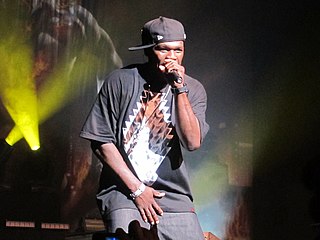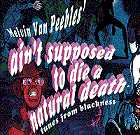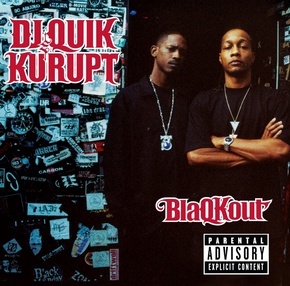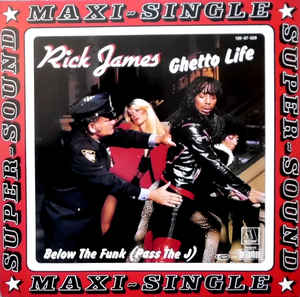
Rapping is known to be a musical form of vocal delivery that incorporates "rhyme, rhythmic speech, and street vernacular". It is performed or chanted, usually over a backing beat or musical accompaniment. The components of rap include "content", "flow", and "delivery". Rap differs from spoken-word poetry in that it is usually performed off-time to musical accompaniment. Rap is a primary ingredient of hip hop music commonly associated with that genre; however, the origins of rap predate hip-hop culture by many years.

The music of the United States reflects the country's multi-ethnic population through a diverse array of styles. It is a mixture of music influenced by the music of Europe, Indigenous peoples, West Africa, Latin America, Middle East, North Africa, amongst many other places. The country's most internationally renowned genres are traditional pop, jazz, blues, country, bluegrass, rock, rock and roll, R&B, pop, hip-hop/rap, soul, funk, religious, disco, house, techno, ragtime, doo-wop, folk, americana, boogaloo, tejano, reggaeton, surf, and salsa, amongst many others. American music is heard around the world. Since the beginning of the 20th century, some forms of American popular music have gained a near global audience.
Miami bass is a subgenre of hip hop music that became popular in the 1980s and 1990s. The use of drums from the Roland TR-808, sustained kick drum, heavy bass, raised dance tempos, and frequently sexually explicit lyrical content differentiate it from other hip hop subgenres. Music author Richie Unterberger has characterized Miami bass as using rhythms with a "stop-start flavor" and "hissy" cymbals with lyrics that "reflected the language of the streets, particularly Miami's historically black neighborhoods such as Liberty City, Goulds, and Overtown".
Jazz rap is a fusion of jazz and hip hop music, as well as an alternative hip hop subgenre, that developed in the late 1980s and early 1990s. AllMusic writes that the genre "was an attempt to fuse African-American music of the past with a newly dominant form of the present, paying tribute to and reinvigorating the former while expanding the horizons of the latter." The rhythm was rooted in hip hop over which were placed repetitive phrases of jazz instrumentation: trumpet, double bass, etc. Groups involved in the formation of jazz rap included A Tribe Called Quest, Digable Planets, De La Soul, Gang Starr, The Roots, Jungle Brothers, and Dream Warriors.

Melvin Van Peebles was an American actor, filmmaker, writer, and composer. He worked as an active filmmaker into the 2000s. His feature film debut, The Story of a Three-Day Pass (1967), was based on his own French-language novel La Permission and was shot in France, as it was difficult for a black American director to get work at the time. The film won an award at the San Francisco International Film Festival which gained him the interest of Hollywood studios, leading to his American feature debut Watermelon Man, in 1970. Eschewing further overtures from Hollywood, he used the successes he had so far to bankroll his work as an independent filmmaker.

African-American music is an umbrella term covering a diverse range of music and musical genres largely developed by African Americans and their culture. Its origins are in musical forms that developed as a result of the enslavement of African Americans prior to the American Civil War. It has been said that "every genre that is born from America has black roots."

Christopher Edward Martin, known professionally as DJ Premier, is an American record producer and DJ. He is considered one of the greatest hip hop producers of all time. He was half of the hip hop duo Gang Starr—alongside the rapper Guru—and presently forms half of the hip hop duo PRhyme, together with Royce da 5'9".
Hip hop soul is a subgenre of contemporary R&B music, most popular during the early and mid 1990s, which fuses R&B or soul singing with hip hop musical production. The subgenre had evolved from a previous R&B subgenre, new jack swing, which had incorporated hip-hop influences into R&B music. By contrast, hip hop soul is, as described in The Encyclopedia of African American Music, "quite literally soul singing over hip hop grooves".

Breaking Atoms is the debut album of American/Canadian hip hop group Main Source, released July 23, 1991, on Wild Pitch Records. Production was handled by the group, primarily by member Large Professor, and took place during 1990 to 1991 at Homeboy Studio, Power Play Studios, and Libra Digital in New York City. Recorded during the golden age of hip hop, Breaking Atoms is distinguished stylistically by its incorporation of jazz and soul music samples. The album has been highly regarded by music writers due mostly to its production, whose heavy and original use of sampling influenced hip hop producers for a considerable portion of the 1990s.

What the...You Mean I Can't Sing?! is the fourth studio album by Melvin Van Peebles. Released in 1974, this album marks the first traditional music effort by Van Peebles. Previously, Van Peebles released the experimental spoken word albums Brer Soul, Ain't Supposed to Die a Natural Death and As Serious as a Heart-Attack.

Ghetto Gothic is the fifth studio album by Melvin Van Peebles. Released in 1995, this album marks the second traditional music effort by Van Peebles, after What the....You Mean I Can't Sing?! Previously, Van Peebles released the experimental spoken word albums Brer Soul, Ain't Supposed To Die a Natural Death and As Serious as a Heart-Attack.

Illmatic is the debut studio album by American rapper Nas. It was released on April 19, 1994, by Columbia Records. After signing with the label with the help of MC Serch, Nas recorded the album in 1992 and 1993 at Chung King Studios, D&D Recording, Battery Studios, and Unique Recording Studios in New York City. The album's production was handled by DJ Premier, Large Professor, Pete Rock, Q-Tip, L.E.S., and Nas himself. Styled as a hardcore hip hop album, Illmatic features multi-syllabic internal rhymes and inner-city narratives based on Nas' experiences growing up in the Queensbridge Houses in Queens, New York City.

Ain't Supposed to Die a Natural Death (Tunes from Blackness) is a musical with a book, music, and lyrics by Melvin Van Peebles. The musical contains some material also on three of Van Peebles' albums, Brer Soul, Ain't Supposed to Die a Natural Death and As Serious as a Heart-Attack, some of which were yet to come out.

Once Upon a Dream is the fourth studio album by rock band The Rascals, released February 19, 1968. The album rose to number 9 on the Billboard Top LPs chart and number 7 on the R&B chart.

Pieces of a Man is the debut studio album by American poet Gil Scott-Heron. It was recorded in April 1971 at RCA Studios in New York City and released later that year by Flying Dutchman Records. The album followed Scott-Heron's debut live album Small Talk at 125th and Lenox (1970) and departed from that album's spoken word performance, instead featuring compositions in a more conventional popular song structure.
Hip hop music or hip-hop music, also known as rap music and formerly known as disco rap, is a genre of popular music that originated in New York City in the 1970s. It consists of stylized rhythmic music that commonly accompanies rapping, a rhythmic and rhyming speech that is chanted. It developed as part of hip hop culture, a subculture defined by four key stylistic elements: MCing/rapping, DJing/scratching with turntables, break dancing, and graffiti writing. Other elements include sampling beats or bass lines from records, and rhythmic beatboxing. While often used to refer solely to rapping, "hip hop" more properly denotes the practice of the entire subculture. The term hip hop music is sometimes used synonymously with the term rap music, though rapping is not a required component of hip hop music; the genre may also incorporate other elements of hip hop culture, including DJing, turntablism, scratching, beatboxing, and instrumental tracks.

Blaqkout is a collaboration album by rapper/record producer DJ Quik and rapper Kurupt. It is completely produced by DJ Quik. The album debuted at #61 on the Billboard 200, selling 10,000 copies its first week.
William "Spaceman" Patterson is a guitarist and producer, who has collaborated with Miles Davis, James Brown and Frank Ocean.

"Say Man" is a song by American musician Bo Diddley. Written under his real name of Ellas McDaniel, it was recorded by Bo Diddley in 1958 and released as a single in 1959 on Checker 931.

"Ghetto Life" is a song written by Rick James that was first released on his 1981 album Street Songs and was later released as the third single from the album.














